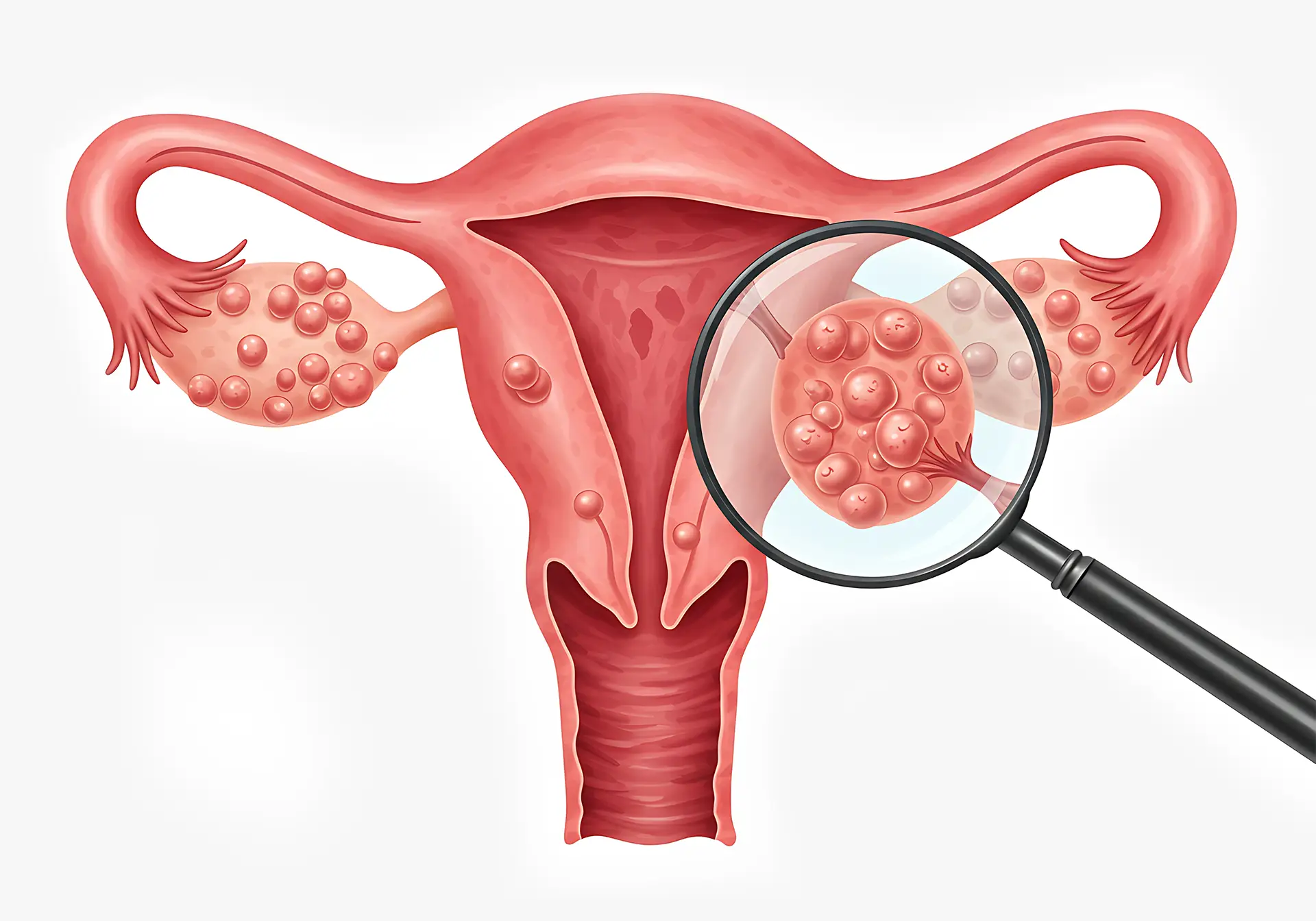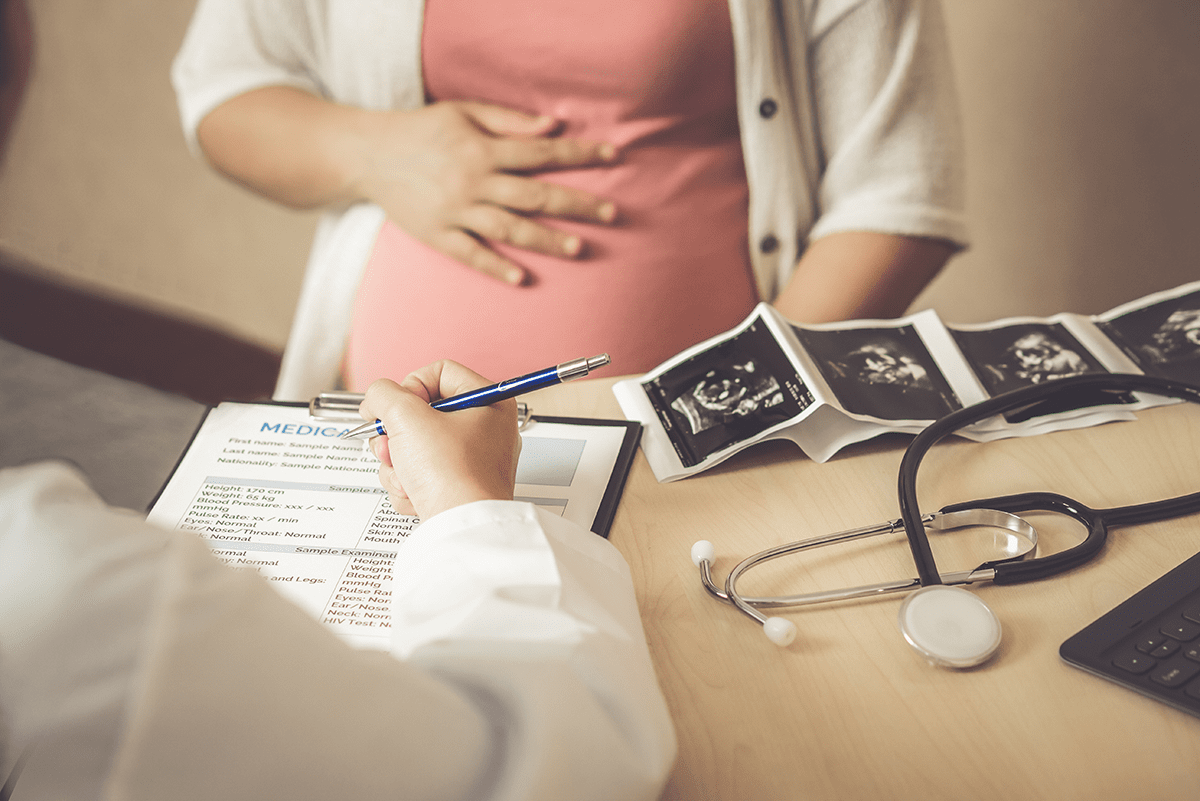Uterine fibroids can develop unnoticed, subtly growing and causing symptoms that we might mistake for regular menstrual changes or other common health issues.
That’s why being aware of the exact warning signs of fibroids in your uterus is crucial for early detection and timely treatment.
What are uterine fibroids?
Uterine fibroids, also known as myomas, are benign tumours that develop from the muscular tissue of the uterus. They vary in size, from tiny nodules to large masses that can distend the uterus. Fibroids can be single or multiple and are categorised based on their location within the uterus:
- Submucosal: Grow into the uterine cavity
- Intramural: Develop within the muscular wall of the uterus
- Subserosal: Project to the outside of the uterus
Genetic predisposition, hormonal imbalances, and some growth factors may contribute to the development of fibroids.
Warning signs of uterine fibroids
Heavy or prolonged bleeding
Abnormal menstrual bleeding is the most common symptom of uterine fibroids. Women with fibroids may experience:
- Heavy menstrual bleeding (menorrhagia): Excessive blood loss can lead to anaemia, causing fatigue and weakness.
- Prolonged periods: Menstrual cycles lasting more than seven days.
If you find yourself frequently changing pads or tampons, or if your periods are significantly longer than usual, you may have fibroids in your uterus.
Pelvic pain and pressure
Fibroids in uterus can produce a sensation of pressure or pain in the pelvic region. This discomfort can be mild to severe, continuous or intermittent. The pain is often described as:
- Pelvic pressure: A feeling of heaviness or fullness in the lower abdomen.
- Lower back pain: Pain spreading to the lower back or legs.
Frequent urination or difficulty urinating
Fibroids in uterus can weigh on the bladder, leading to urinary symptoms. These may include:
- Frequent urination: Urinating more often than usual.
- Difficulty emptying the bladder: Feeling like you can’t completely empty your bladder.
These symptoms can disrupt daily activities and affect sleep quality.
Painful intercourse
Uterus fibroids can cause pain during sexual intercourse, a condition known as dyspareunia. This pain may be due to enlarged fibroids or its location, which can put pressure on surrounding tissues and organs.
Unexplained abdominal swelling
Enlarged fibroids can cause visible abdominal swelling, which may be mistaken for weight gain or pregnancy. If you observe a significant increase in abdominal size without an apparent reason, it could be due to fibroids.
Sudden or severe pain
While most fibroids cause gradual symptoms, sudden or severe pain can occur if a fibroid undergoes degeneration or if its blood supply is compromised. This acute pain needs immediate medical attention.
Diagnosis and treatment
Diagnosing fibroids in uterus requires a combination of a pelvic exam and imaging procedures such as ultrasound or MRI. Once diagnosed, the fibroids treatment options depend on the fibroid’s size, location, and number, as well as the extent of symptoms and the woman’s desire for future pregnancies. Treatment options include:
- Medications: Hormonal therapies can help regulate menstrual cycles and reduce symptoms.
- Non-invasive procedures: MRI-guided focused ultrasound surgery (FUS) can shrink fibroids.
- Minimally invasive procedures: Laparoscopic surgery removes fibroids while preserving the uterus.
- Traditional surgery: Hysterectomy, the complete removal of the uterus due to fibroids, is considered when other treatments are ineffective or if the woman no longer wishes to preserve fertility.
Cost considerations
The cost of treating uterine fibroids varies depending on the treatment method, location, and healthcare provider. Non-invasive and minimally invasive procedures generally have a lower price and shorter recovery time than traditional surgery.
You should discuss all available options with your healthcare provider and consider insurance coverage and out-of-pocket expenses.
Why early intervention matters
Early diagnosis and treatment of uterus fibroids are crucial for alleviating symptoms and restoring quality of life.
Treating fibroids early can prevent complications such as severe anaemia or fertility issues. Women who wish to have children in the future may have more treatment options available if fibroids in the uterus are detected and managed early.
Get help for uterus fibroids
Uterus fibroids are a common yet manageable condition. If you suspect you havefibroids in your uterus or are experiencing any of the warning signs, you should consult a gynaecologist.
Dr Chang has over 25 years of experience in gynaecology and minimally invasive surgery. He provides comprehensive and compassionate care to women with uterus fibroids and offers a range of treatment options tailored to each patient’s unique condition.
Book an appointment now to learn more about uterine fibroid removal and treatment cost.


